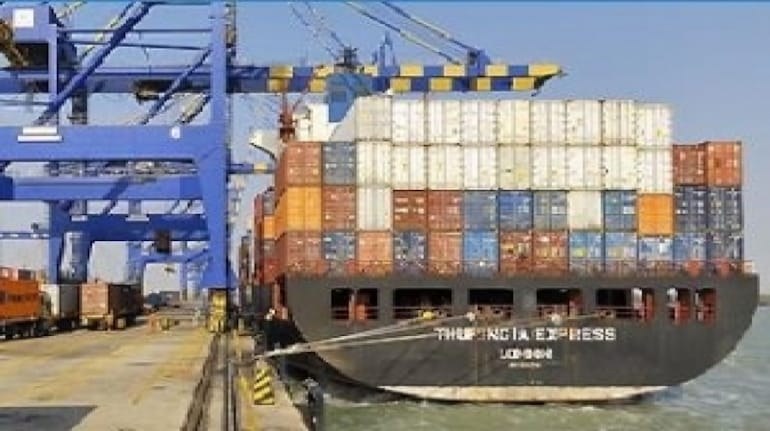



Last year when Adani Ports and Special Economic Zone Ltd came out with its ambitious plan to handle throughput volumes of 400 million tonnes by 2024-2025, not many expected the company to reach its goal through the inorganic acquisition route.
However, with three big acquisitions at a combined value of Rs 18,000 crore in the last six months, Adani Ports is cruising on its way to achieving its target.
The three acquisitions are expected to add around 120-140 million tonnes annually to the company’s total cargo handling volumes which stood at around 223 MT in 2019-20 (April-March).
But what does this mean for the Indian market?
The acquisitions of the ports in the last six months are expected to expand Adani Port’s market share to 30 percent on a pan-India basis.
While Adani Ports’ market share is still below 50 percent, it is expected to have a competitive edge over other players as the 12 major ports owned by the Central government already control more than half of the country’s ports traffic.
Following the acquisitions, the company operates 14 ports and terminals located in Mundra, Dahej, Kandla and Hazira in Gujarat, Dhamra in Odisha, Mormugao in Goa, Visakhapatnam in Andhra Pradesh, and Kattupalli and Ennore in Tamil Nadu, apart from the three aforementioned ones.
The strategic benefits of its acquisitions not only make Adani Ports the largest private port operator in the country but also give it control over the hinterland cargo.
Karan Adani, Chief Executive Officer and Whole Time Director of Adani Ports, said the associated hinterland cargo gives the company the ability to become one of the fastest-growing ports in the eastern region.
Moody’s Investors Service also said that Adani Port’s acquisitions, which serve the hinterland of south and central Andhra Pradesh, will allow the company to achieve greater diversification by increasing volume from India's east coast.
Moody’s also said Adani Ports' acquisitions will help it consolidate assets for greater economies of scale and operational efficiency.
How does this affect the valuation of Adani Ports?
Adani Ports had acquired a 75 percent stake in Krishnapatnam Port Co Ltd for an enterprise value of Rs 12,000 crore in October, and in February, the company completed the acquisition of Dighi Port for Rs 705 crore. It also committed to spend Rs 10,000 crore to develop it as an alternate gateway to the Jawaharlal Nehru Port Trust.
With its latest acquisition of 58.1 percent stake held by D V S Raju and family, the promoters of Gangavaram Port Ltd, for Rs 3,604 crore, Adani Ports' strategy to expand its operations through the inorganic route looks to have paid dividends as its stock price has risen over 8 percent in the last 3 days.
The company's stock is expected to continue its upward trend.
Sandeep Upadhyay, Managing Director, infrastructure advisory at Centrum Capital, said the current acquisition of Gangavaram Port by Adani Ports was struck at about 9-times EV/EBITDA which leaves enough steam left in Adani Ports' stock because the stock continues to trade at a higher premium.
“They will be trading at 12-13-times in terms of their forward multiples,” Sandeep Upadhyay said, adding that he sees a 20-25 percent upside in Adani Ports over the next 12 months and expect more acquisitions from the group.
ICICI Securities also has a buy call on the stock with a target of Rs 790 per share. "The stock is in a strong uptrend. It has generated a breakout above a falling channel containing the last two weeks' breather," it said.
Morgan Stanley has maintained its overweight call on the stock with a target of Rs 733 per share. It believes that the Gangavaram Port deal is value accretive, adding that the port has a strong balance sheet and steady cash flow generation.
The company’s stock has been on the rise for the past year and its market capitalisation went beyond Rs 1 trillion in December after rising around 30 percent in 2020.
Discover the latest Business News, Sensex, and Nifty updates. Obtain Personal Finance insights, tax queries, and expert opinions on Moneycontrol or download the Moneycontrol App to stay updated!
Find the best of Al News in one place, specially curated for you every weekend.
Stay on top of the latest tech trends and biggest startup news.